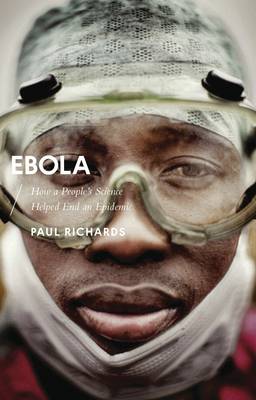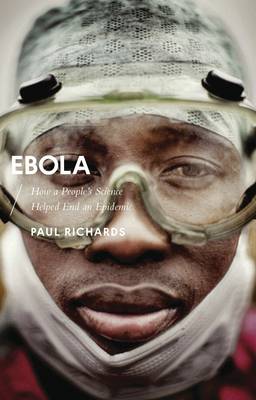
- Afhalen na 1 uur in een winkel met voorraad
- Gratis thuislevering in België vanaf € 30
- Ruim aanbod met 7 miljoen producten
- Afhalen na 1 uur in een winkel met voorraad
- Gratis thuislevering in België vanaf € 30
- Ruim aanbod met 7 miljoen producten
Zoeken
Omschrijving
Shortlisted for the Fage and Oliver Prize 2018
From December 2013, the largest Ebola outbreak in history swept across West Africa, claiming thousands of lives in Liberia, Sierra Leone and Guinea. By the middle of 2014, the international community was gripped by hysteria. Experts grimly predicted that millions would be infected within months, and a huge international control effort was mounted to contain the virus. Yet paradoxically, by this point the disease was already going into decline in Africa itself. So why did outside observers get it so wrong?
Paul Richards draws on his extensive first-hand experience in Sierra Leone to argue that the international community's panicky response failed to take account of local expertise and common sense. Crucially, Richards shows that the humanitarian response to the disease was most effective in those areas where it supported these initiatives and that it hampered recovery when it ignored or disregarded local knowledge.
From December 2013, the largest Ebola outbreak in history swept across West Africa, claiming thousands of lives in Liberia, Sierra Leone and Guinea. By the middle of 2014, the international community was gripped by hysteria. Experts grimly predicted that millions would be infected within months, and a huge international control effort was mounted to contain the virus. Yet paradoxically, by this point the disease was already going into decline in Africa itself. So why did outside observers get it so wrong?
Paul Richards draws on his extensive first-hand experience in Sierra Leone to argue that the international community's panicky response failed to take account of local expertise and common sense. Crucially, Richards shows that the humanitarian response to the disease was most effective in those areas where it supported these initiatives and that it hampered recovery when it ignored or disregarded local knowledge.
Specificaties
Betrokkenen
- Auteur(s):
- Uitgeverij:
Inhoud
- Aantal bladzijden:
- 192
- Taal:
- Engels
- Reeks:
Eigenschappen
- Productcode (EAN):
- 9781783608584
- Verschijningsdatum:
- 15/09/2016
- Uitvoering:
- Paperback
- Formaat:
- Trade paperback (VS)
- Afmetingen:
- 135 mm x 213 mm
- Gewicht:
- 249 g

Alleen bij Standaard Boekhandel
+ 51 punten op je klantenkaart van Standaard Boekhandel
Beoordelingen
We publiceren alleen reviews die voldoen aan de voorwaarden voor reviews. Bekijk onze voorwaarden voor reviews.








